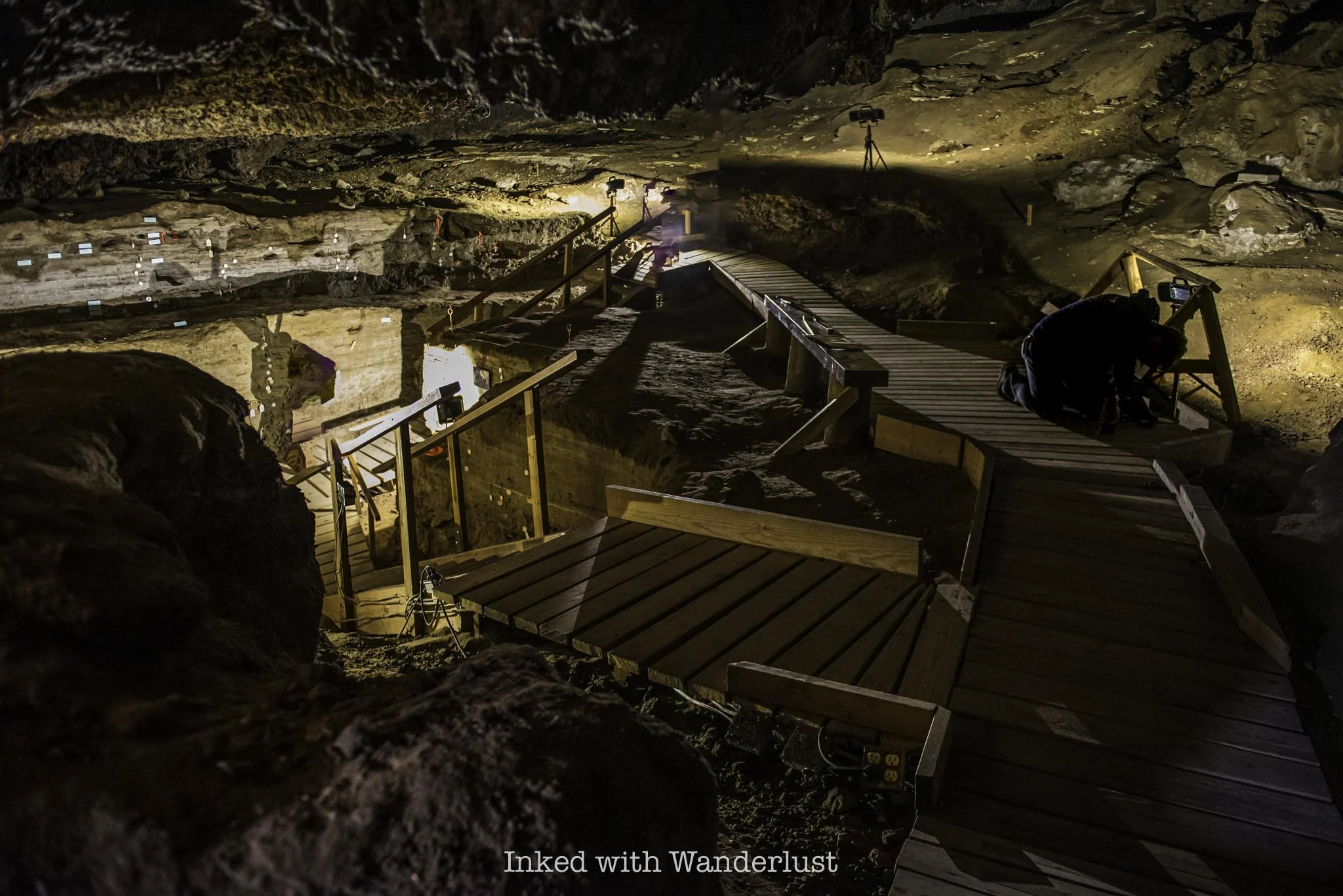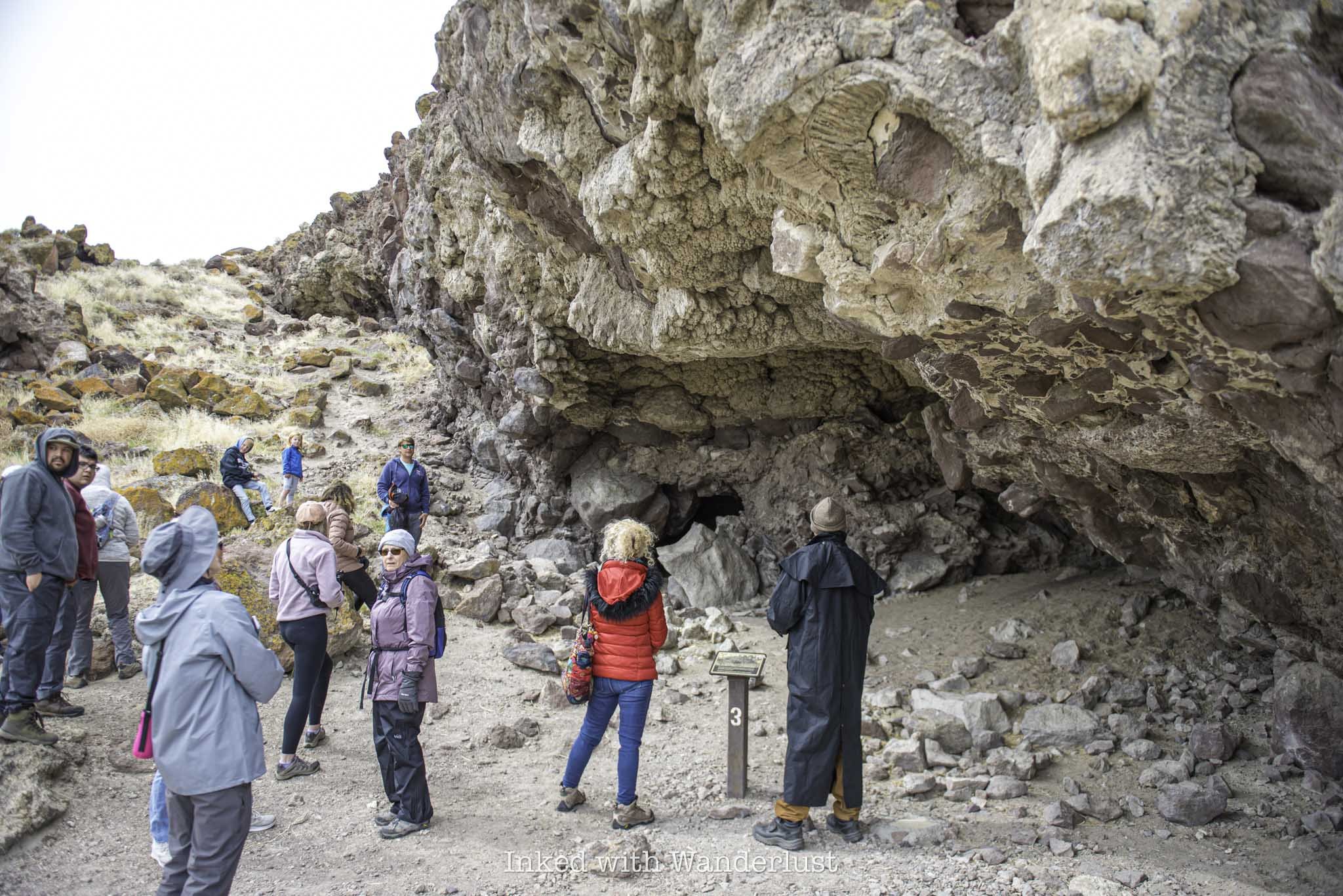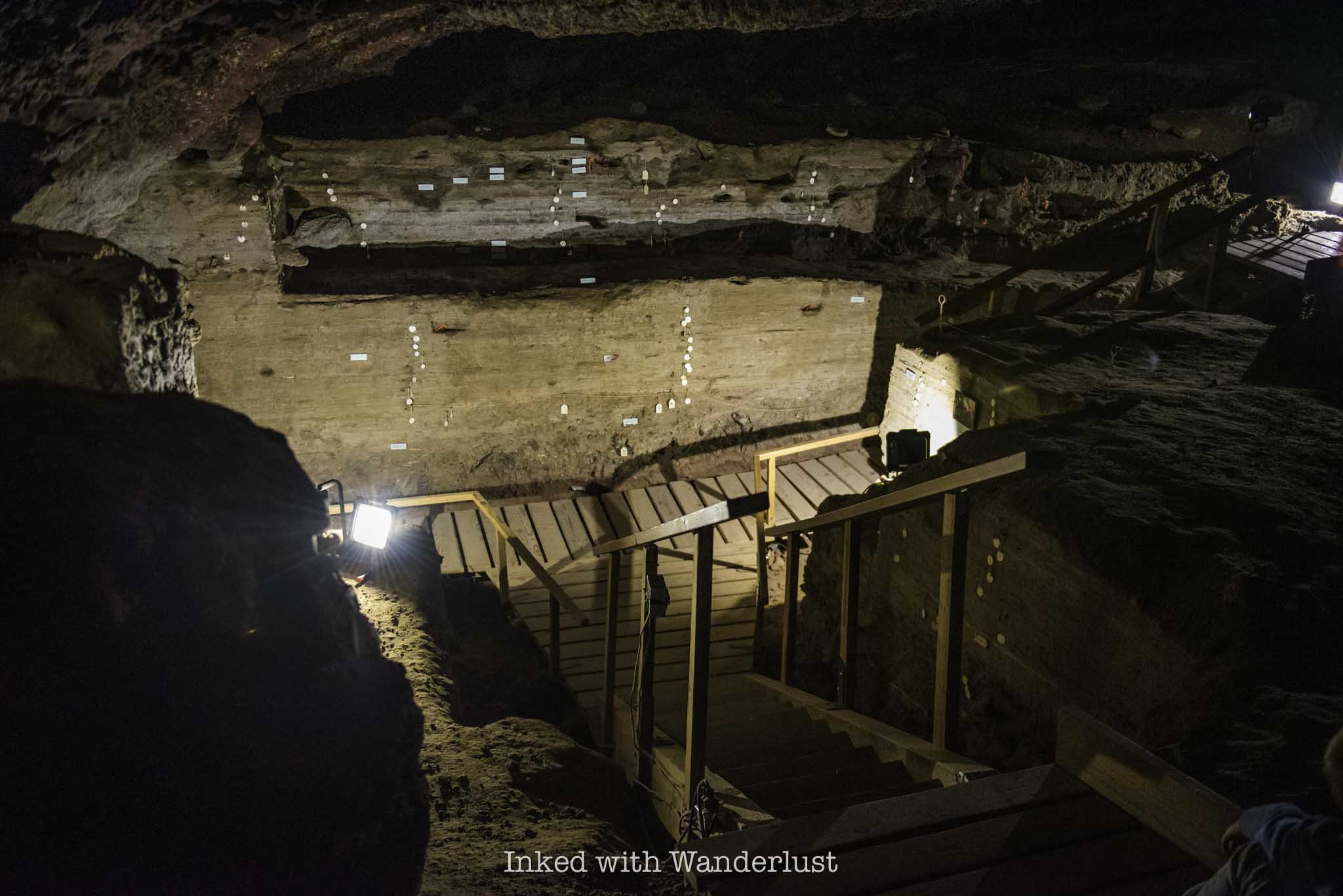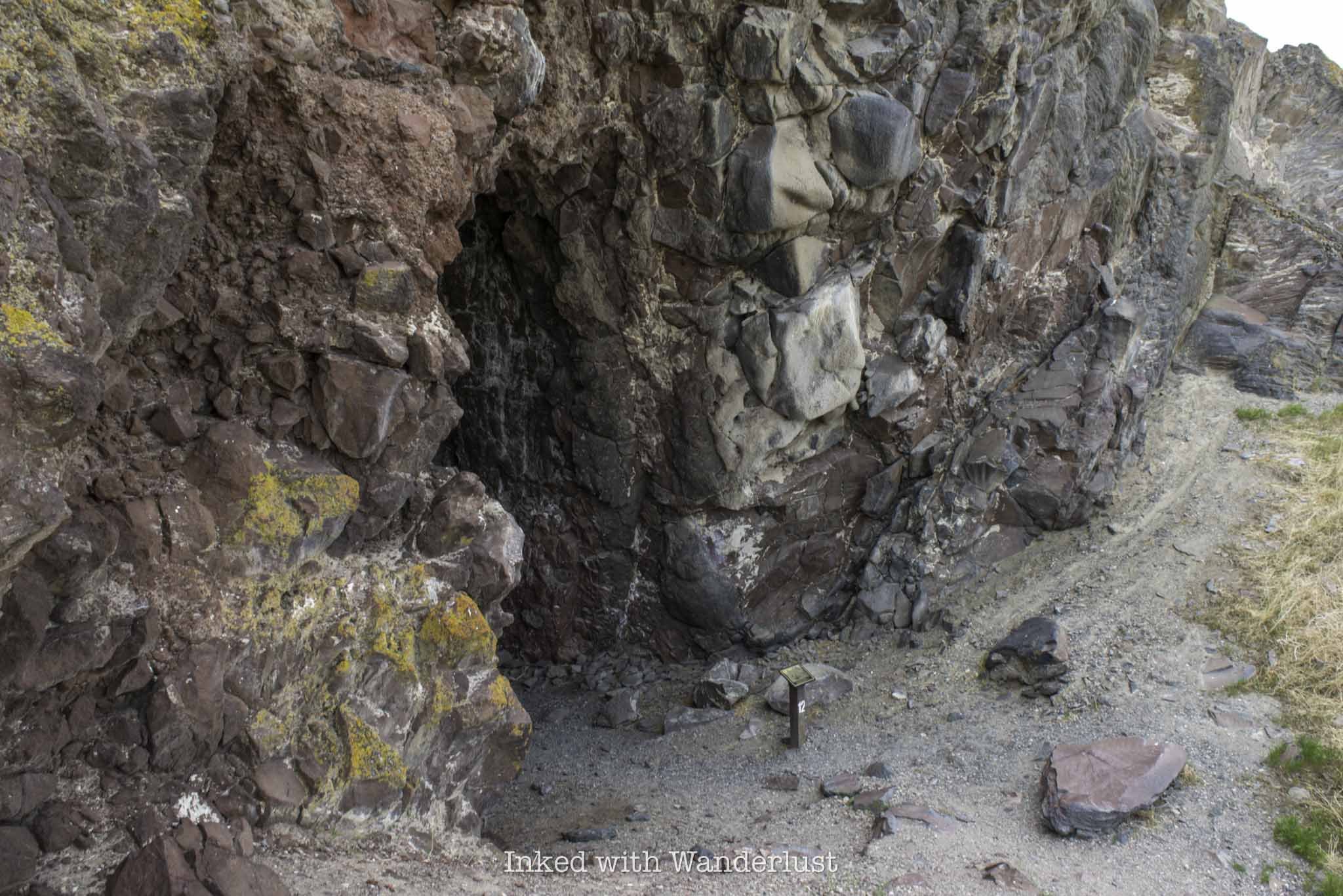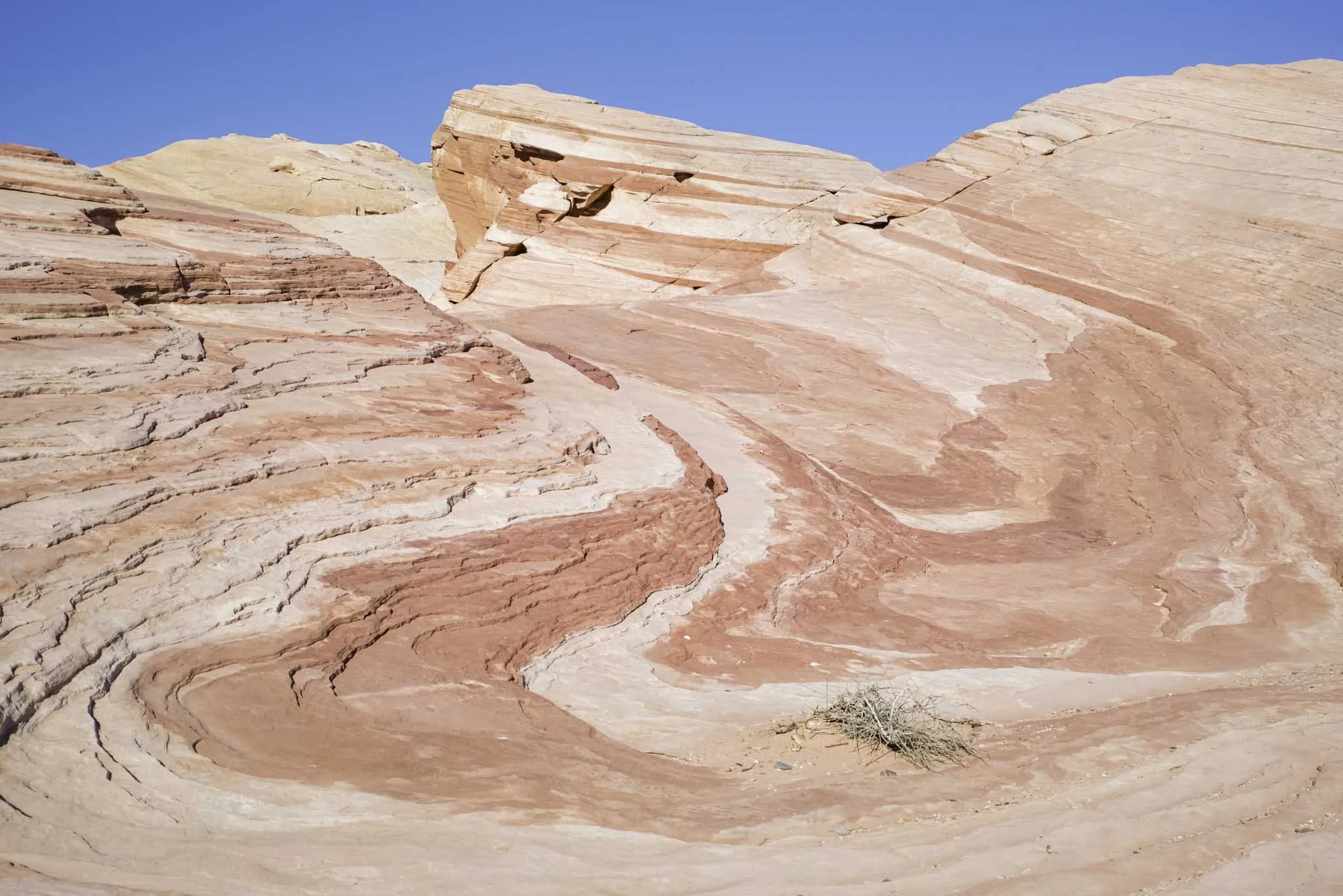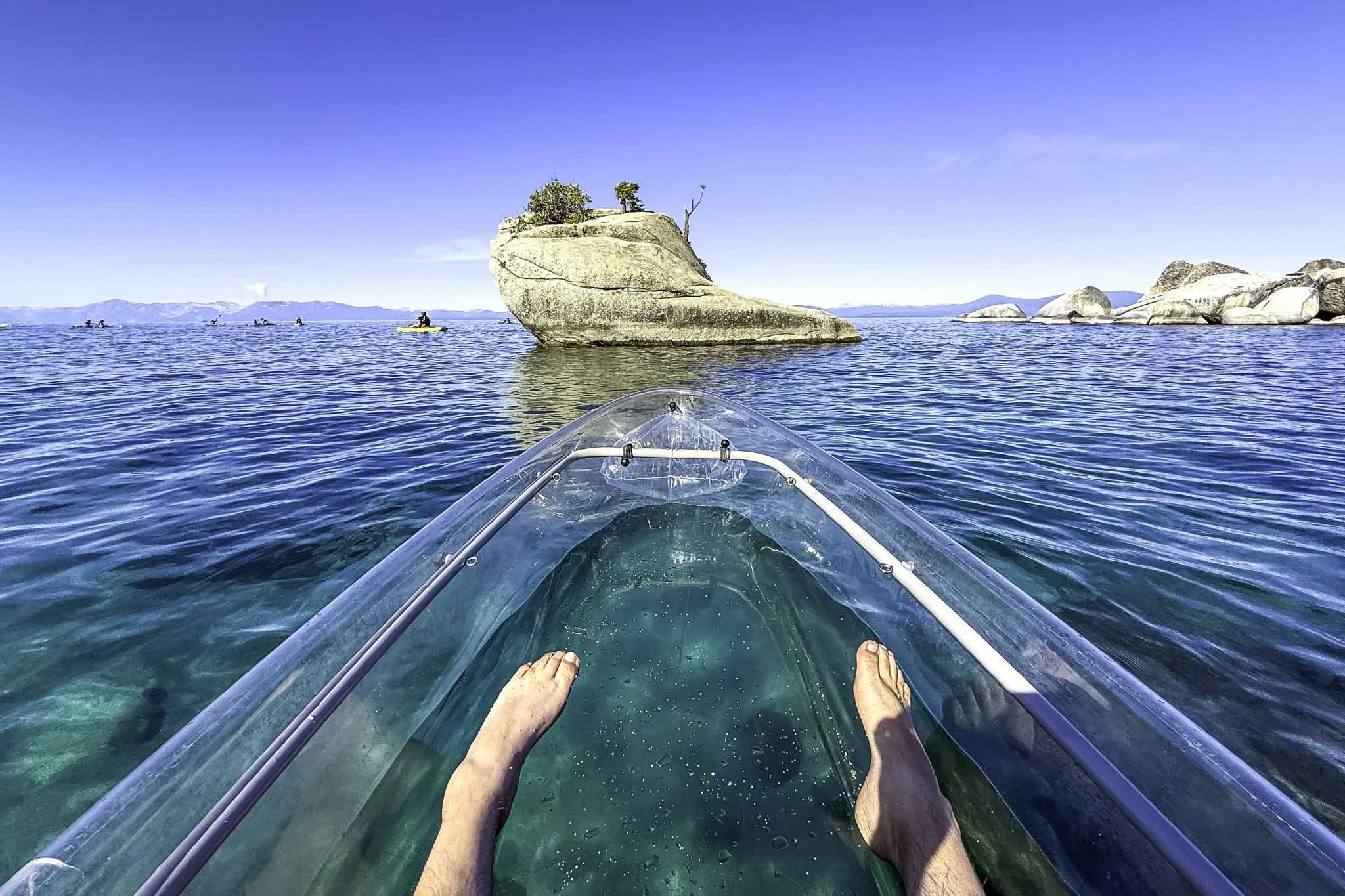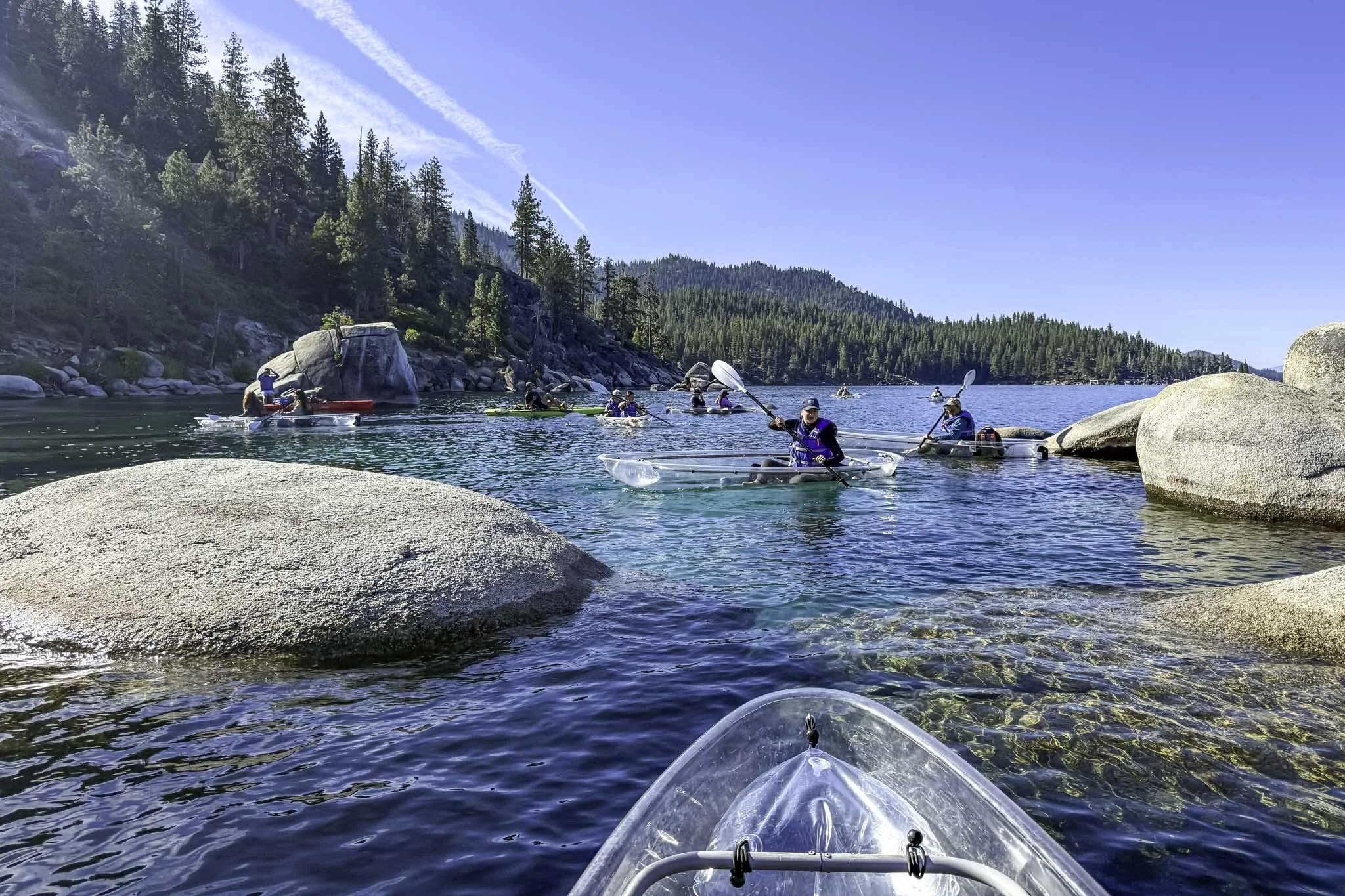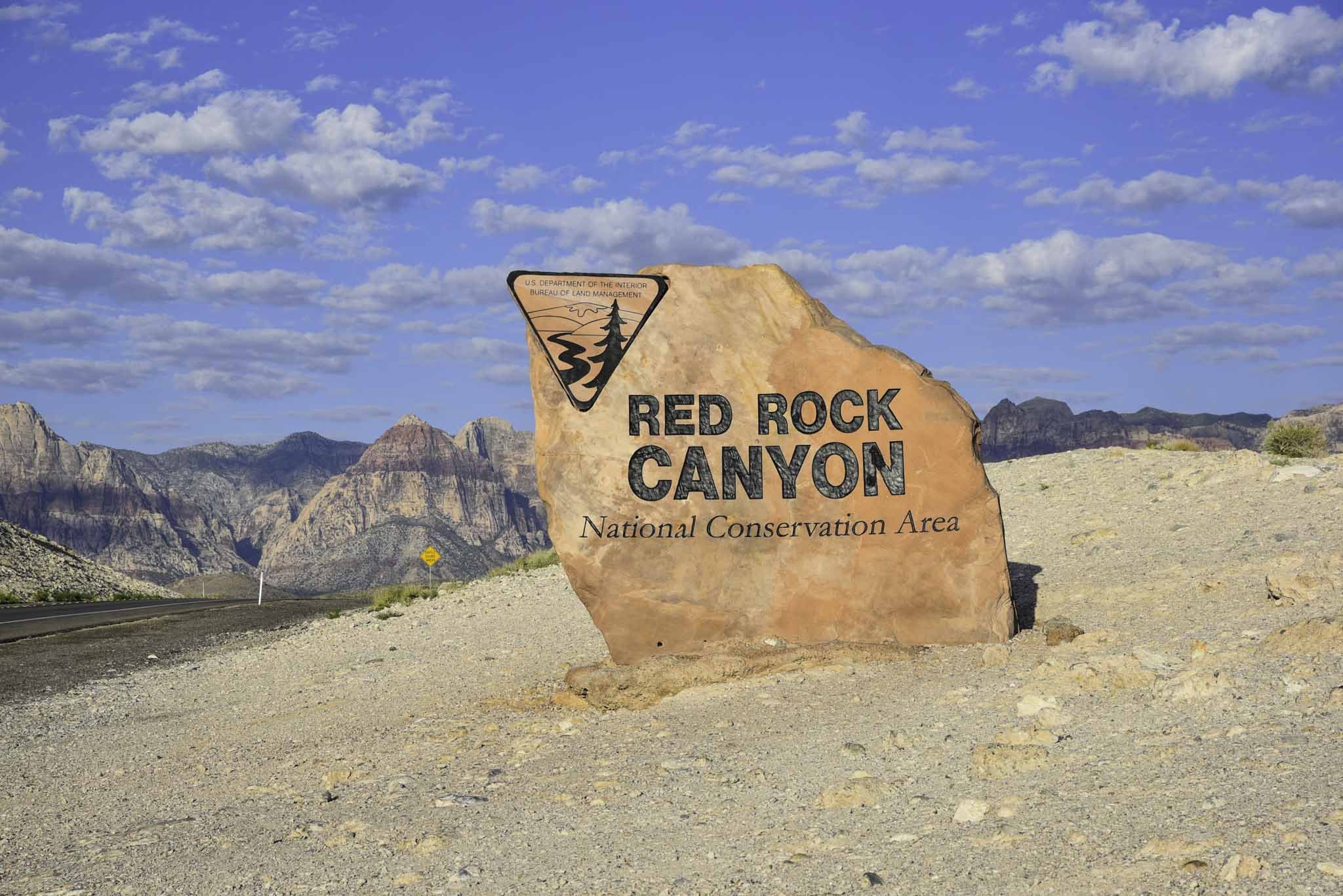How to Visit and Tour Hidden Cave in Fallon
Disclosure: This post contains affiliate links. If you make a purchase through these links, I may earn a small commission at no additional cost to you. I only recommend products or services that I believe will add value to my readers.
Hidden Cave, located within Grimes Point Archaeological Area on the outskirts of Fallon, is a prehistoric archaeological site containing thousands of years of human and geological history.
Pounding waves from ancient Lake Lahontan, a massive body of water in the last ice age, carved and developed the cave some 20,000 years ago. As the lake receded, the cave became exposed and started being used by animals.
Around 3,800 years ago, human activity began in the cave, as the Toi-Ticutta peoples used the cave not as a dwelling, but as a cache site. Pits were created, storing a variety of tools and supplies for safe keeping.
Today, the cave is open to the public for twice-monthly guided tours. During the tour, your guide educates you on the cave and area, taking you along a trail pointing out petroglyphs, additional caves, tufa formations and more.
Trail Stats
Location: Fallon, Nevada
Fee: None
Open: Trail is open year-round. Hidden Cave only accessible via guided tour, every 2nd and 4th Saturday of each month
Family Friendly: Yes
Cell Service: Good (Verizon)
Restroom: At the visitor center and trailhead
Parking: Large dirt/gravel lot
EV Stations: None
Difficulty: Easy to moderate
Popularity: Low to moderate
Mileage: 0.7 mile loop (not counting optional spur trails)
Time: Two hour tour
Elevation: 6,700 feet
Condition: Well maintained and easy to follow
Features: Multiple prehistoric caves, hundreds of tufa formations and ancient petroglyphs
Best Viewed: Spring or fall
Pets: Allowed on trail, but not inside Hidden Cave
Drones: Allowed in area
Hazards: Potential rattlesnake encounters, head injuries in the cave and exposed trail
My Visit(s): April 2025
Churchill County Museum - Hidden Cave Tour
All public tours to Hidden Cave begin at the Churchill County Museum in downtown Fallon. Tours are guided by a Bureau of Land Management (BLM) representative on the 2nd and 4th Saturday of each month, with the exception for holiday weekends. You can view current dates here.
You’ll want to arrive by 9:15am, as orientation begins promptly at 9:30am. There is no fee to enter the museum or to take the tour, nor are there any parking fees. The address for the museum is:
1050 South Main Street, Fallon, Nevada
If you can, I recommend arriving to the museum even early than 9:15 to give you more time to explore the it. For being a small museum, it’s packed with exhibits of Native American and pioneer history.
I believe they open at 9am on tour days, which gives you time to check out the exhibits (though not enough to see it all). If you don’t arrive early, consider heading back to the museum after the Hidden Cave tour.
When orientation begins, your tour guide will make their introduction and give you a brief breakdown of what to expect on the tour and provide some historic context of what you’ll see.
Then, you’ll watch a roughly 20-minute video which dives deeper into the Native American history of the cave, how it formed and what archeologists eventually discovered in the cave.
At the conclusion of the video, your guide will answer any final questions from the group and provide everyone time to use the restroom. You’ll then return to your vehicle and caravan to the cave.
Hidden Cave Trail
You can follow your tour guide there or simply punch “Hidden Cave” into your GPS of choice and go. The cave is about 15-minutes from the museum. When you turn left onto the dirt road, keep left at the junction. Going right will take you to Grimes Point.
The dirt/gravel road is riddled with potholes, but my sedan made it through just fine. Just take it slow if you need to. You’ll soon arrive at the trailhead. There, you’ll find a restroom (vaulted) and informational signs.
Once everyone in the group has arrived, your guide will again explain what to expect. To avoid the rocky portion of the trail, you can opt to head up the direct path to the cave and wait for the rest of the group there.
However, if you can, I recommend doing the entire trail. It is rocky, but only at certain points and is easily navigable, in my opinion. You’ll go right at the trailhead and the first feature you’ll see are petroglyphs on multiple rocks.
Petroglyphs
Your guide will explain the history of petroglyphs in the area and what ancient Indians may have been trying to convey with them. You’ll find many more at nearby Grimes Point, which I highly suggest stopping there after the tour.
From here, you’ll continue up the trail. Feel free to take your time and stop to take as many pictures as you want. The tour guide was good about waiting for everyone to get the next point before speaking.
Picnic Cave
The next stop on the Hidden Cave trail is another cave called Picnic Cave. This cave isn’t closed off like Hidden Cave is and you can visit it anytime you like, with or without a tour guide.
The best feature of this cave is the large amount of tufa formations around the entrance and roof. If you don’t know, tufa is a porous sedimentary rock composed of calcium carbonate or silica, and is formed under water.
In this case, the tufa in this area formed when Lake Lahontan covered this entire region. Keep in mind, Hidden Cave is at 6,700 feet elevation. Picnic Cave isn’t much lower. Literally all of this was submerged at one point.
Another great example of tufa formations is a couple hours away in Lee Vining, California, at the Mono Lake Tufa Natural Reserve. However, the examples here are more in abundance, covering nearly the entire cliffs and mountainsides around you.
A Quick Rest with a Great View
After Picnic Cave, it’ll be an uphill slog until you reach the entrance to Hidden Cave. Due to this, the tour guide will stop the group a couple times to allow time for rest. At the second stop, you’ll have a commanding view of what was once marsh land.
Take a look around you when you’re up here. You’re at around 6,500 feet elevation at this point. You’ll notice the cliffs above you that are easily 7,000 feet and up with more tufa formations on them.
Remember, tufa only forms under water with the right amount of minerals. Photos can’t do it justice, but getting that perspective from here really shows just how massive and deep Lake Lahontan was.
Hidden Cave
After a brief rest, the group will continue up another incline until you reach the entrance to Hidden Cave. The entrance is small, requiring all but small children to crotch down to get through it.
For context, I’m 5’9 and I had get down pretty low to get in. For anyone six feet or taller, I would imagine this being challenging for them. When you get through the entrance, keep your head down for a few feet as there are low-hanging rocks.
Once you get past the first few feet, you’ll arrive to an open chamber on a wooden boardwalk. As you can see in the photo above, you’ll be able to fully stand once inside, no matter your height.
In the video at the museum, it was stated you could fit two NBA-sized courts in the cave and have room for spectators on the side. I’m not so convinced of that, as it didn’t appear to be that roomy. It was still impressive, though.
The amount of walkable space on the boardwalks is small and you cannot walk on the cave floor at all. So if you’re part of large or even semi-large group (like I was), it can be tough to navigate.
Once folks start leaving, though, you’ll have more elbow room to explore. My tour guide said he would stay for as long as anyone wanted to explore, so there was no rush. I simply waited for most of the group to leave to look around.
On the walls in the lower portion of the cave are markers. Some mark the age of each layer of rock you’re looking at and others indicate where certain animal fossils were found and their age.
Spend some time looking at these markers and getting photos, then make your way out of the cave. The entrance is also the exit. From here, the tour is over and you’re free to explore on your own.
Side Quest - Burnt Cave
When the tour was over, our guide tipped me off to another cave to check out that also had pictographs on the walls. To get there, head back down the trail until you reach the junction you see in the photo above.
Going right (where you just came from) will take you back to Hidden Cave. Take the trail on the left. You’ll start winding your way back down the mountain and see more examples of tufa formations and dramatic cliffs on the way.
After about a quarter-mile, at trail marker twelve, you’ll see a series of wooden steps leading up an incline. When you get to the top, Burnt Cave will come into view. It’s more an indent into the mountain than a cave, but still cool to see.
This cave was excavated in 1971. Looking at the cave, you’ll notice the red pictographs that were unfortunately partially covered by modern vandalism. By the way, Hidden Cave is locked behind a gate now for that very reason. It was also vandalized back in 2014.
Go a little further up the trail to the other side of Burnt Cave to see even more tufa formations. The ones over here are even crazier than those at Picnic Cave. One almost looks like a mushroom-like formation.
The trail keeps going from here, but I didn’t go any further. To get back to your vehicle, simply head back down the trail. You won’t need to climb back up to Hidden Cave as the trail splits again towards the parking lot. Take a right at the junction to get there.
From here, I recommend driving down the road to Grimes Point and taking time to explore that. The amount of petroglyphs along that short trail is mind boggling. For places to eat, I recommend Pho, The Slanted Porch, and Middlegate Station.
If you’re on a road trip heading towards Interstate-80 east, you can make another stop at Lovelock Cave (near Lovelock) and Thunder Mountain Monument in Imlay. Heading towards Yerington? Consider stopping at Fort Churchill or hike the Wilson Canyon Loop.
JEREMIAH 29:11
